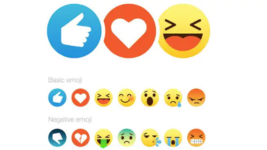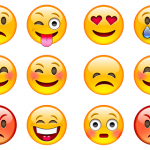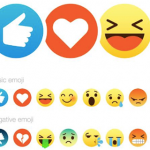Canadian Court Rules That a ‘Thumbs Up’ Emoji Can Validate a Contract

It’s hard not to love the emoji – it’s a cute, quick and easy way to communicate. And tech providers are coming up with new ideas all the time to keep us amused as we stay in touch with each other.
Increasingly, emojis are being used in business communication too, and a Canadian judge has just ruled that a “thumbs up” emoji can amount to valid as a signature and thereby validate a contract.
The facts of the case
The Court of King’s Bench in the province of Saskatchewan, Canada was recently called upon to determine a contractual dispute between a grain buyer and seller which centred on whether a valid contract was executed by the latter as a result of a thumbs up emoji.
The buyer, Kent Mickleborough of South West Terminal Ltd, sent a mass text message to potential sellers in March 2021, advising that his company was looking to buy 86 tonnes of flax at a price of $17 per bushel.
He later spoke with farmer and grain seller, Chris Achter of Achter Land & Cattle Ltd, over the phone and subsequently texted a photo of a contract he had signed for the delivery to be received in November, asking the farmer to “please confirm flax contract” in the message.
Mr Achter responded with a thumbs-up emoji. But he failed to deliver the flax in November – and by that time, prices for the crop had increased.
According to court documents, the company South West, had been buying grain from Achter Land & Cattle Ltd since 2012.
The issue in dispute
In court, presiding Justice Timothy Keene summarised the dispute as follows, “The parties disagree as to whether there was a meeting of minds which is the basis of a contractual obligation. A contract is only formed where there is an offer by one party that is accepted by the other with the intention of creating a legal relationship and supported by consideration.”
“Received” verses “agreed”
Much of the case centred around the “context” and “meaning” of the use of the emoji.
Mr Mickleborough cited previous contracts confirmed by text message, suggesting the emoji meant confirmation and agreement to the terms of contract.
But Mr Achter argued the emoji indicated only that he had received the contract in the text message.
And so, as the case progressed, it became abundantly clear that as with the meaning and context of words in sentences, the use of the “thumbs up” emoji can be interpreted in several different ways.
According to reports, Justice Keene at one point used a dictionary.com definition of the symbol, lamented that the case “led the parties to a far flung search for the equivalent of the Rosetta Stone in cases from Israel, New York State and some tribunals in Canada, etc. to unearth what a “thumbs up emoji means”.
As good as a signature
“This court readily acknowledges that a thumbs up emoji is a non-traditional means to ‘sign’ a document but nevertheless under these circumstances this was a valid way to convey the two purposes of a ‘signature’,” Justice Keene wrote in his judgement.
He dismissed concerns raised by the defence team that acceptance of the “thumbs up” emoji as an official agreement “would open up the floodgates” to new and various interpretations of other emojis, including the ‘fist bump’ and ‘hand shake’.
Justice Keene found that the standard to be used to make a determination was whether a “reasonable bystander” observing the situation could determine that the “parties” had agreed to the contract.
Farmer Achter was ordered to pay Canadian $82,000 (about AUD$61,442) for an unfulfilled contract.
A sign of the times
In finding that the thumbs-up can be used to enter into contracts, Justice Keene said the court “cannot (nor should it) attempt to stem the tide of technology and common usage” of emojis.
“This appears to be the new reality in Canadian society and courts will have to be ready to meet the new challenges that may arise from the use of emojis and the like.”
Emojis are definitely a staple of our digital landscape, and this is not the first time their meaning has been debated in court.
What the case does demonstrate is the challenge for courts in arbitrating miscommunication and misinterpretation within the rapidly changing nature of the way we communicate.
Many people are now not just using emojis but also abbreviations, slang, idioms and invented spelling, sometimes called “tribe lingo”.
It’s one of the reasons why traditional and modern dictionaries have had to abandon publishing only conventional and established words, and keep moving with the times.
This doesn’t just mean our use of words, but the increasing use of symbols and emojis and memes in our communication and our methods of communication, which are becoming predominantly via text and social media messaging and other electronic methods, rather than via email and post.







